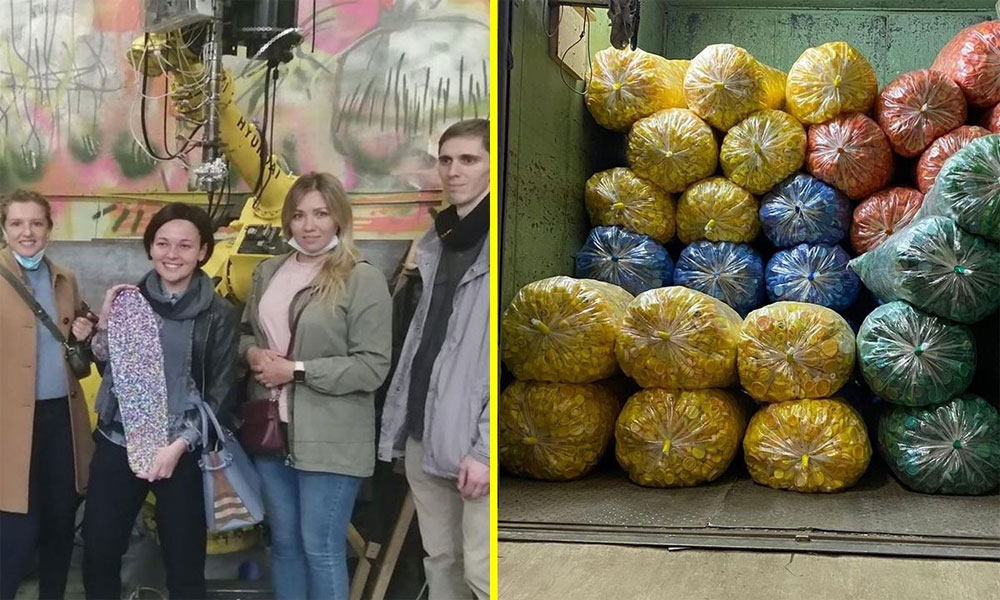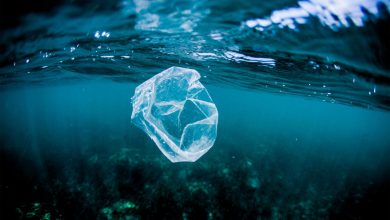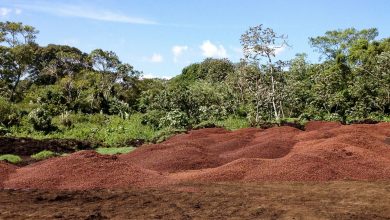Fashion Company Designs Accessories Out of Trash Pile in Russia

A vogue company based mostly in St. Petersburg, Russia takes trash piles and transforms them into distinctive equipment which may be displayed on these polystyrene heads.
Unfortunately, Russia’s landfills have poorer upkeep and fewer oversight than these in different nations all through Europe
In reality, one landfill in Mosow measures at the very least 10 tales tall. Authorities warn that poor waste administration might result in infectious illnesses and polluted groundwater.
Because of the dire trash state of affairs in Russia, the vogue company 99Recycle determined to take issues into their very own arms. Workers sifted by mountains of trash to assemble varied recyclable supplies. Then, they turned them into novel recycled equipment and college provides. The company designed objects equivalent to backpacks, baggage, pencil and laptop computer instances, and toys like skateboards and bicycles.
Their ingenuity caught the eye of officers overseeing the 2020 St. Petersburg Awards. They gave the Recycle/Upcycle Project of the Year award to 99Recycle as a result of of their sustainable merchandise.
Making the world a greater place one lovely accent at a time!
In the trendy world, “fast fashion” is an ever-growing downside. Companies purpose to create mass portions of garments as cheaply as doable, with out regard for the results. Unfortunately, retaining prices low takes a devastating toll on the surroundings. According to the World Economic Forum, the style trade produces an astounding 10% of complete carbon emissions.
Some different startling statistics about quick vogue embody the next:
Here are some fascinating info.
The vogue trade makes use of so much of water
- The vogue trade is one of probably the most water-intensive industries in the world, second solely to fruit and vegetable farming. It consumes round 79 billion cubic meters of water yearly.
- Making only one cotton T-shirt requires about 2,700 liters of water, and a pair of denims takes practically 7,600 liters.
- The water it takes to make one T-shirt might present one individual consuming water for 900 days.
- The vogue trade contributes enormously to water air pollution. Textile dyeing is the world’s second-largest polluter of water. Runoff from the dyeing course of goes into rivers, streams and ditches.
- Cotton requires 5,283 gallons of water to provide simply 2.2 kilos of the crop. This quantity of cotton can produce only one T-shirt and a pair of denims. According to the WWF, “current cotton production methods are environmentally unsustainable.”
- Washing garments additionally creates dangerous air and ocean air pollution. Each year, round 500,000 tons of microfibers get launched into the oceans from laundry alone. This equates to 50 billion plastic bottles value of microplastics.
Clothing litters the world’s landfills
- The equal of one rubbish truck of garments goes to a landfill each second. A staggering 85% of textiles finally ends up in dumps every year, the place it will get burned or just goes to waste. The Sydney harbor might get stuffed yearly with the quantity of garments thrown away.
- People purchased 60% extra clothes in 2014 in comparison with 2000, however they saved garments solely half as lengthy.
- Since 2000, the style trade’s manufacturing has practically doubled.
- Fashion firms in Europe solely supplied a median of two collections per year in 2000. In 2014, that elevated to 5.
The impression of synthetics
- The majority of the fibers really come from polyester, a kind of plastic discovered in roughly 60% of clothes. Polyester manufacturing releases two to a few occasions extra carbon emissions than cotton, and polyester doesn’t break down in the ocean.
- A 2017 report from the International Union for Conservation of Nature (IUCN) supplied extra damning proof towards the style trade. It estimated that 35% of all microplastics, tiny items of non-biodegradable plastics — in the ocean got here from washing artificial merchandise like polyester.
- Just one instance of the vogue trade’s catastrophic impression on the surroundings may be seen in Uzbekistan. There, relentless cotton farming brought about the Aral Sea to fully dry up after 50 years. To put that in perspective, the Aral Sea was as soon as one of the world’s 4 largest lakes.
- In complete, the style trade causes 20% of all industrial water air pollution worldwide.
How 99Recycle is disrupting the style trade with sustainability
As you’ll be able to see, quick vogue and the manufacturing of garments, in normal, contributes enormously to environmental degradation. 99Recycle is only one company that goals to drastically cut back its carbon footprint.
The company makes use of a big 3D printer very like the kind utilized by Hyundai. This 3D printer solely makes use of recycled plastic as uncooked supplies, and creates textiles from hand-sewn merchandise. This ensures that every accent or clothes merchandise retains individuality. So far, 99Recycle has gathered over 70 tons of recycled plastic by collaborating with native recycling companies.
“The process of preparing the materials is more complicated than for ordinary materials. Most of our time is taken up by the preparation, because we need to clean it, to make it even, to select it, to reject some materials,” Olesya Kulik, designer at 99Recycle advised Euronews.
Since 95% of all waste in Russia finally ends up in landfills, 99Recycle doesn’t wish to contribute additional to the issue. Instead, they wish to develop into half of the answer in combating throwaway tradition. In addition to creating eco-friendly merchandise, the company holds lessons and lectures about recycling and sustainability. They hope their small affect will assist folks develop into extra conscious of their day by day habits.
“Globally, humanity needs to resolve the garbage problem, there is no way around it,” co-founder of 99Recycle Anton Rykachevskiy says. “A lot of trash is appearing, and we take on the role of guys who inspire everybody around us. We take something that seems to be garbage. Now people call it recyclable materials, it’s good. And we create cool, exceptional things, which weren’t previously made of recyclable materials.”
Final ideas on the style company based mostly in Russia, turning trash into treasure
So who would’ve thought that trash rotting in a landfill might develop into a vogue assertion? That’s precisely what 99Recycle had in thoughts when the founders created the company. They scour landfills and work with recycling non-profits to create distinctive, sustainable objects.
The company has a small on-line retailer promoting baggage, backpacks, fanny packs, and even skateboards. They additionally provide to work with company firms on promotional merchandise and branded merchandise. Indeed, 99Recycle reveals that the style trade can undertake sustainable practices whereas nonetheless creating aesthetically interesting merchandise.












